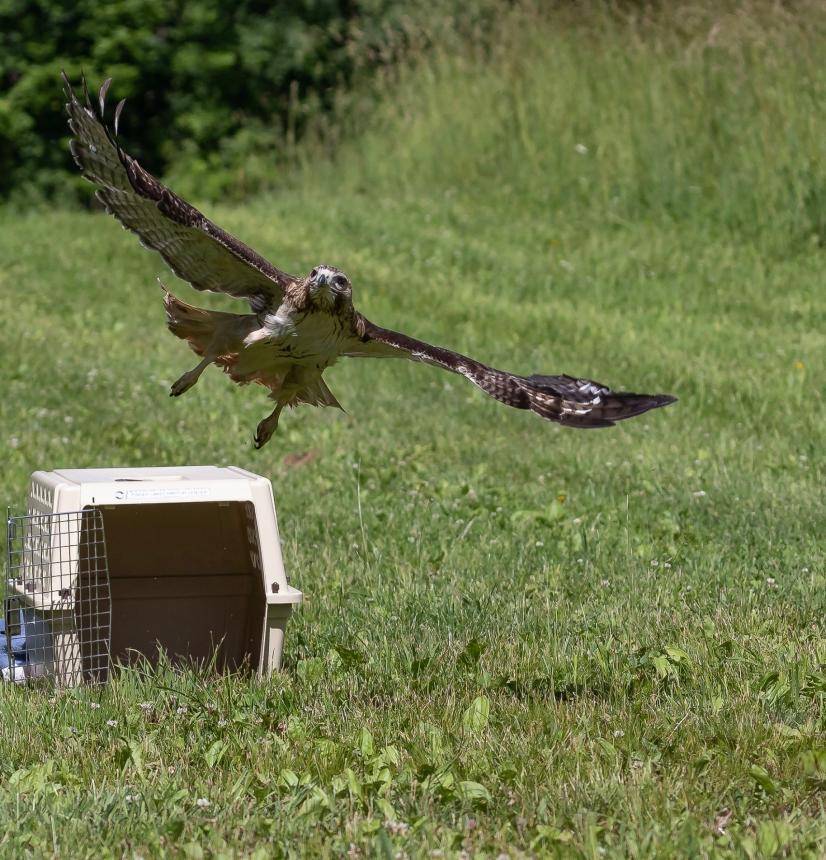Spotlights

Video
November 09, 2021
After they lost their parents and developed bacterial enteritis all in the span of a few weeks, a litter of beaver kits came into the care of our team at the Janet L. Swanson Wildlife Hospital.

For Your Information
October 07, 2021
By analyzing case records, Cornell researchers helped clarify and quantify the causes for wildlife rehabilitation, species involved, and treatment outcomes.

Video
September 22, 2021
Watch the announcement of this year's Ig Nobel Transportation Prize, awarded to a Cornell-led team for their research on whether it's safer for rhinos to be transported upside-down or on their side.

Announcement
July 29, 2021
Our Beyond Fences program in southern Africa has been awarded a three-year grant from WWF to help facilitate greater collaboration between the wildlife and livestock sectors to resolve previously intractable conflicts between animal disease regulatory needs and transfrontier conservation area objectives.
Announcement
July 08, 2021
We are proud to announce that funding for the Aquatic Animal Health Program has been renewed by the New York State Department of Environmental Conservation for a 5-year period.

Blog
May 20, 2021
While every good veterinary student learns the basics for dogs, cats, horses, and cows, there are usually few (if any) courses specifically focused on aquatic animals. Since before I can remember, all I have wanted to do is study and work with the animals that call the sea their home....

Blog
April 08, 2021
As an aspiring veterinarian interested in zoological medicine, I have tried my best to take advantage of all zoo and wildlife opportunities available to me. When I think about the kind of veterinary career I want to have, it is one where I can combine my interests in conservation, international travel and cultural immersion....

Blog
April 01, 2021
Growing up in suburbia there was always an injured bird that needed care, and my house during the springtime quickly became rehabber central. There are a lot of things that my mom wished our neighbors and community had known so we could have had fewer patients. I hope to share some of our baby bird tips and tricks with you here....
Announcement
March 29, 2021
The Wild Carnivore Health Program was awarded a grant from the Wild Sheep Foundation to introduce a program of pathogen surveillance focused on argali and Siberian ibex to help maintain viable herds of wild sheep and goats in Kyrgyzstan and elsewhere in Central Asia.

Announcement
March 19, 2021
Chronic wasting disease is a progressive, fatal, degenerative neurological disease of captive and free ranging deer, elk, and moose. The Cornell Wildlife Health Lab received a grant to assess and quantify risk factors for the introduction of chronic wasting disease in Virginia and to design a state-wide surveillance plan.
